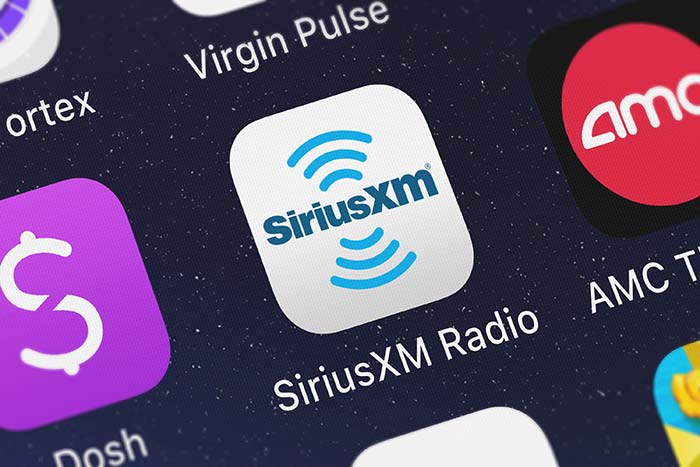Editor’s Note: In case you missed it, last week’s Safety Net included a breakdown of how the Safety Net system performed in 2024.
The results speak for themselves… Click here to see what I mean.
– James Ogletree, Managing Editor
I used to love radio. Heck, I used to be on the radio – first as a sportscaster in college, then as the host of Oxford Club radio here in South Florida for a few years (the broadcast was sent to Oxford Club subscribers as well).
But over the years, the music stations have transitioned to being programmed by computers instead of quirky local DJs, and the talk stations have gotten more and more polarizing, with pundits all shouting the same things about the same issues.
Then I found SiriusXM.
If you’re unfamiliar with SiriusXM, think of it like cable TV but for radio. You have lots more choices than with regular AM and FM radio, and you can create a library of channels that’s just right for you.
Even better, the music stations don’t play only the top hits, and you can find a wide range of opinion on the talk channels. Plus, there’s comedy, live broadcasts of your favorite sports teams, and more.
I’m a fan… and I’m not the only one. Sirius has 33 million subscribers.
Sirius’ stock – Sirius XM Holdings (Nasdaq: SIRI) – also sports a 5.2% yield, which may make income investors happier than Howard Stern landing a P. Diddy interview.
But can investors rely on that dividend?
Though I’ve been a loyal customer for years, Sirius is a high-churn business. As a result, revenue has been declining since 2022 and free cash flow has been slipping since 2021.
Despite its free cash flow falling like Rachel Maddow’s ratings, the company still generates plenty of cash to pay the dividend.
In 2023, SiriusXM generated $1.2 billion in free cash flow while paying shareholders $383 million. That comes out to a low payout ratio of just 32%. In 2024, due to declining cash flow and a higher dividend, the payout ratio is forecast to rise to a still very comfortable 41%.
SiriusXM has boosted the dividend every year since it began paying one in 2016. It most recently raised the payout to $0.27 per share in November, giving the stock a 5.2% yield on the current price.
So we have a company with no problem affording its current dividend and a short but strong track record of raising that dividend. However, declining free cash flow is a cardinal sin in the Safety Net model.
The fact that free cash flow decreased over the past year and the past three years (and is expected to be lower again when the 2024 numbers come out) means the dividend cannot be considered safe – especially since the company has $10 billion in debt.
If SiriusXM can’t turn around its falling cash flow, the dividend will eventually suffer.
Dividend Safety Rating: D

What stock’s dividend safety would you like me to analyze next? Leave the ticker in the comments section.
You can also take a look to see whether we’ve written about your favorite stock recently. Just click on the word “Search” at the top right part of the Wealthy Retirement homepage, type in the company name, and hit “Enter.”
Also, keep in mind that Safety Net can analyze only individual stocks, not exchange-traded funds, mutual funds, or closed-end funds.

